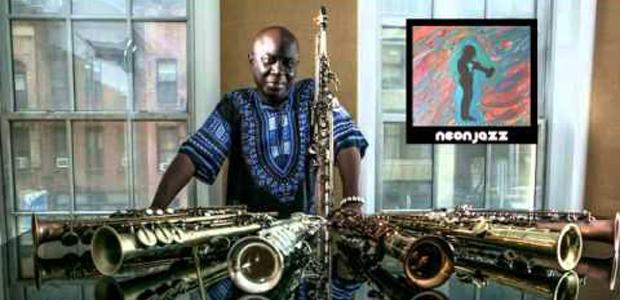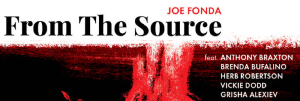On Berklee College of Music, tenure with Terence Blanchard and Accord À Corps project - an interview with Sam Newsome

You began playing alto saxophone when you were kid. What made you choose this particular instrument?
I thought the saxophone sounded cool, and the people who played it looked cool. It just looked liked a fun instrument to play. So I gave it a try and have never turned back.
Was it clear, from those early years that you would become a musician?
The first time I took an improvised solo during my junior high school jazz concert, it was a very surreal experience. I was on a natural high for two days afterward. So, to answer your question: No, I didn't know for certain that I would become a musician at that moment, but I did know that I had been exposed to a whole new way of experiencing music that was going to play a huge role in my life from that point on.
How do you recall the years at the Berklee College of Music? Can you mention the most important thing that you were taught there?
Berklee for me was a time that I experienced tremendous growth as a player and as a person. This sounds a bit cliché, but I feel I entered there a boy and left there a man. It was a good primer for what I was about to experience in New York. I learned not only is it important to learn how to play, but, there is a political and networking side of what we do that's equally as important. It was a huge eye-opener. Not to mention how many great players and teachers I came in contact with daily. It was at times intimidating, but most of the time, it was very inspiring.
What was the background of your decision to focus on the soprano saxophone?
It’s a long story, but the essence of it is this: I was at an artistic crossroad where I felt I needed to decide whether to pursue the path of a musician or that of an artist. The soprano afforded me a chance to do the latter.
You have collaborated with an enormous number of musicians. If you were to choose some of the most significant experiences, which ones would you enumerate?
I would say my tenure with Terence Blanchard. Not only did I learn the importance of having your own voice, but how it's equally important it is to pair that voice with right image and marketing strategy. He was equally meticulous about his public persona and with whom he associated as he was about his music. And it has paid off.
How is the life of a jazz musician in New York like right now? What is the position of jazz currently over there?
Musically, it's amazing; financially, it's very challenging. But I can’t think of another place I’d rather be. I don’t think there’s ever been a period since the heyday of jazz that you’d had such a high concentration of amazing players in one place.
You have recently participated in a project „Accord À Corps” in France which combined live jazz music with dance on stage. Do you take part often in such interdisciplinary undertakings?
I did something similar with choreographer Caren Eule a while back, right when my album Blue Soliloquy was released. We created a piece called Sound Dance, for four dancers and soprano saxophone. But I love interdisciplinary collaborations. It gives me insight into the creative process of artists in other disciplines. In turn, I'm able to survey what I do from a new perspective.
You lead a blog. Do you perceive it as an important way to keep in touch with your listeners?
Absolutely. Blogging is just one component of social media that we as musicians have to utilize in order connect with fellow musicians, future collaborators as well as fans. And my blog, specifically, started off as a way to galvanize soprano saxophone players from around the globe. And I'm proud to say that I've been pretty successful at doing that.
- Aby wysyłać odpowiedzi, należy się zalogować.







